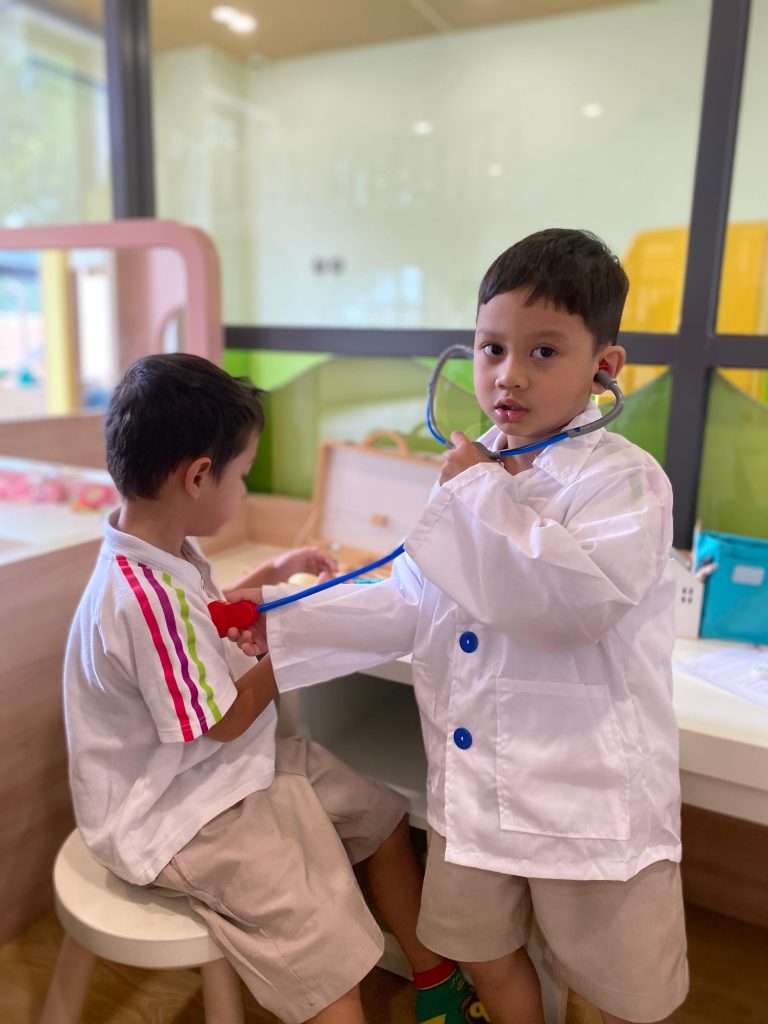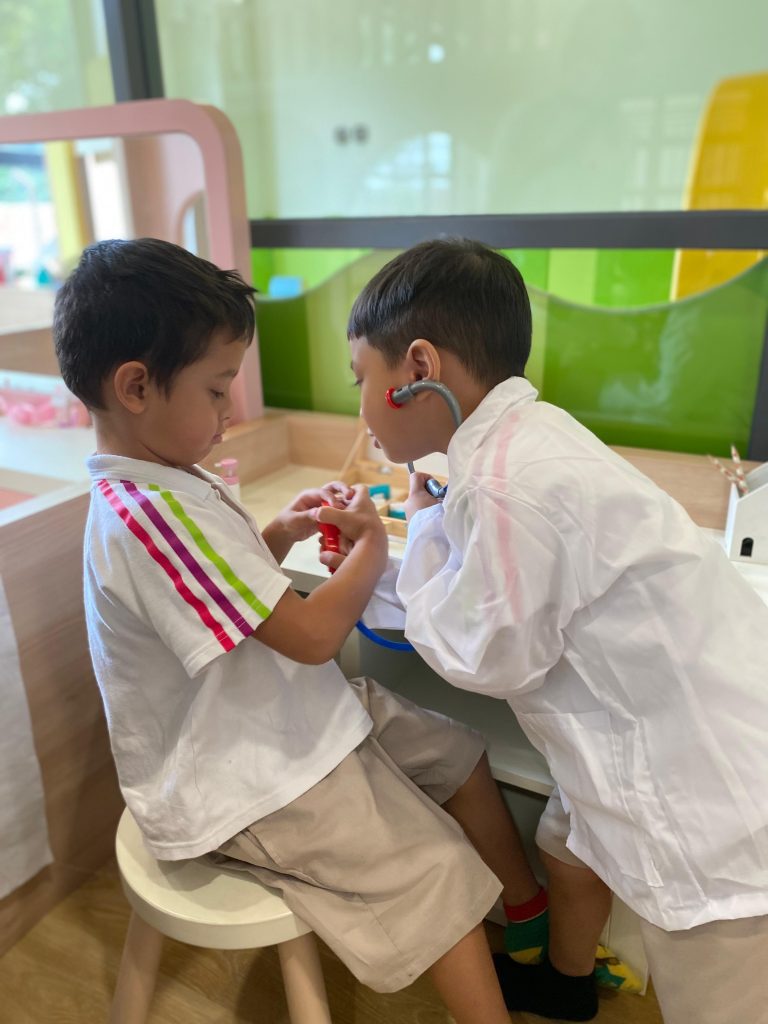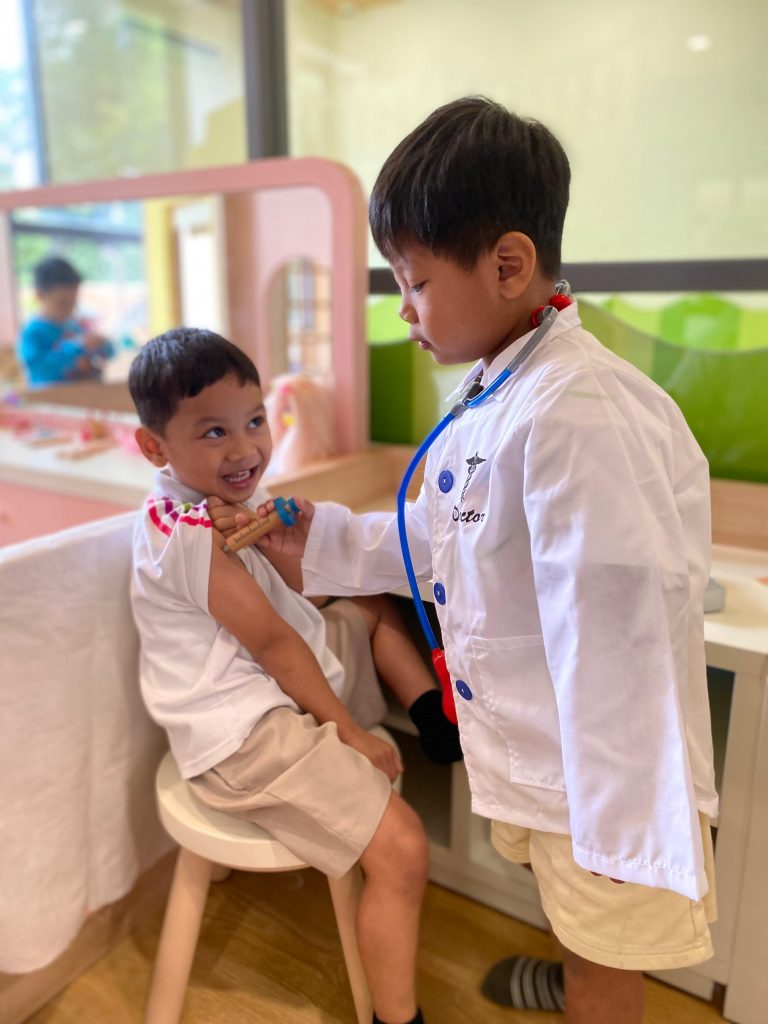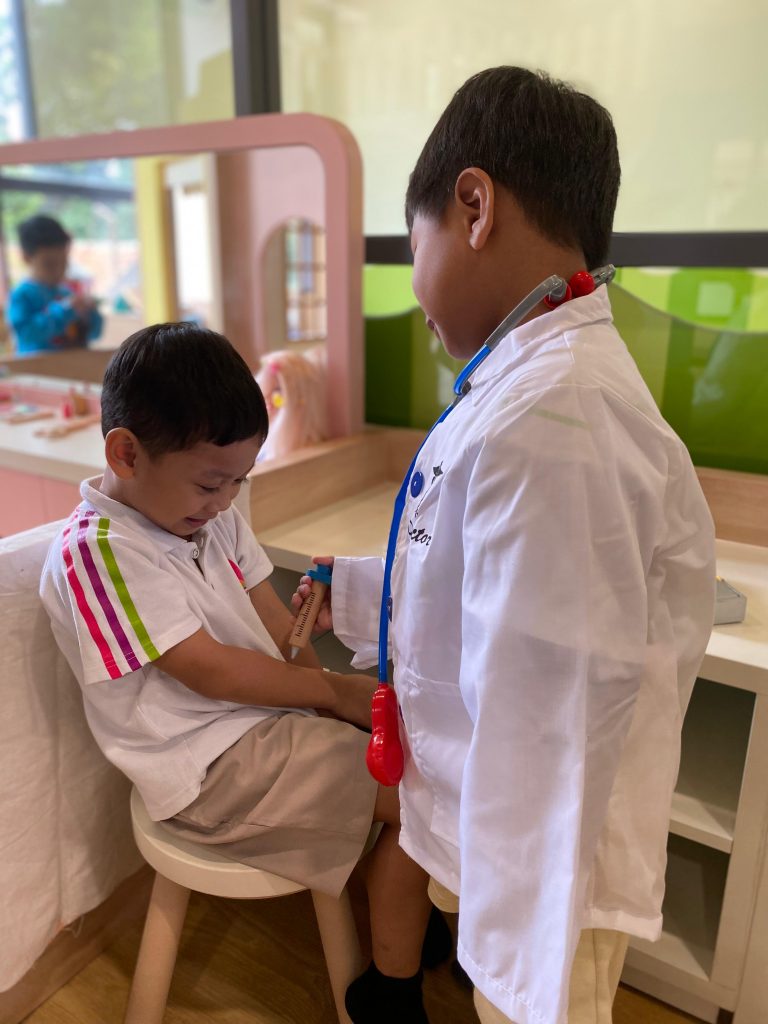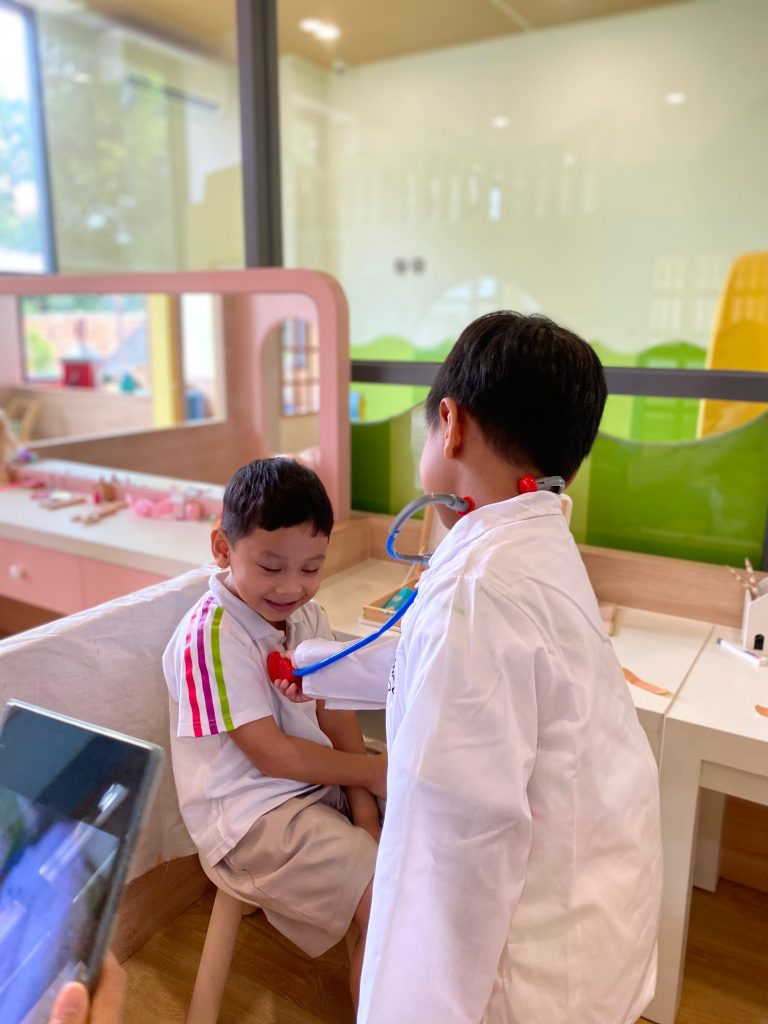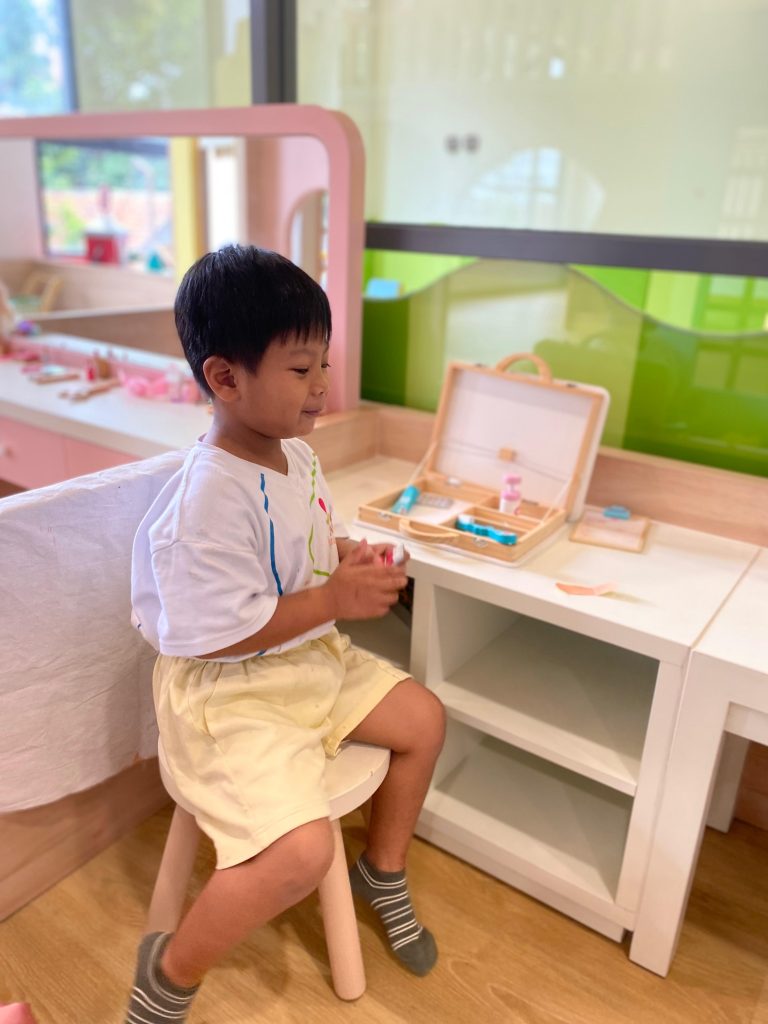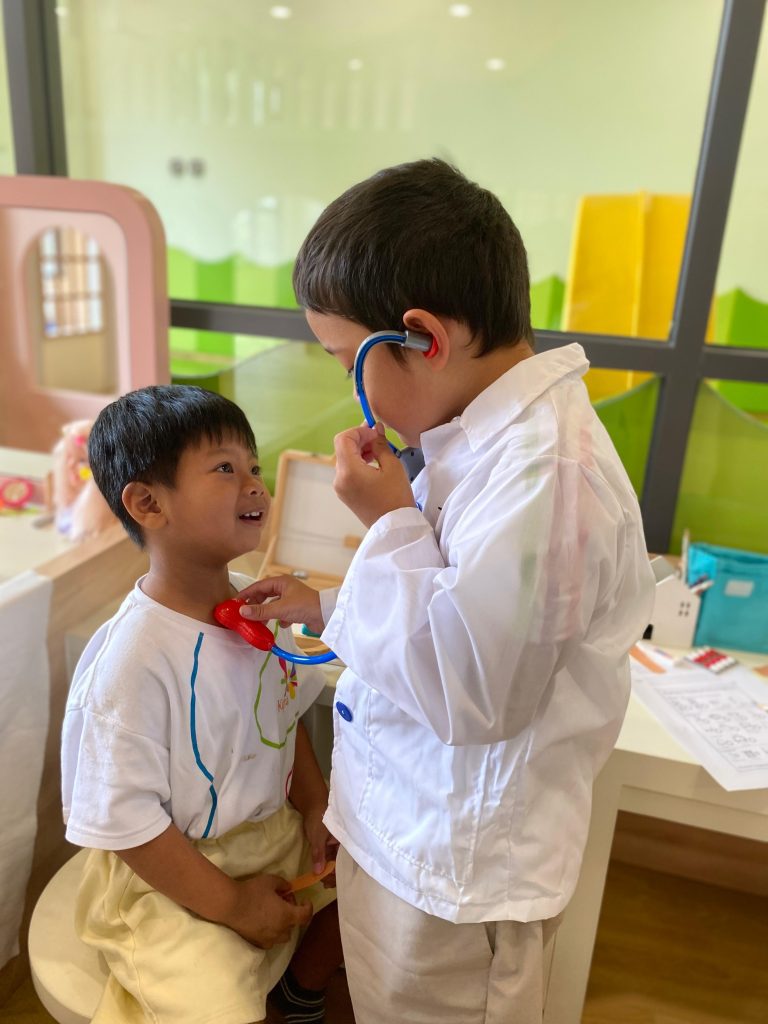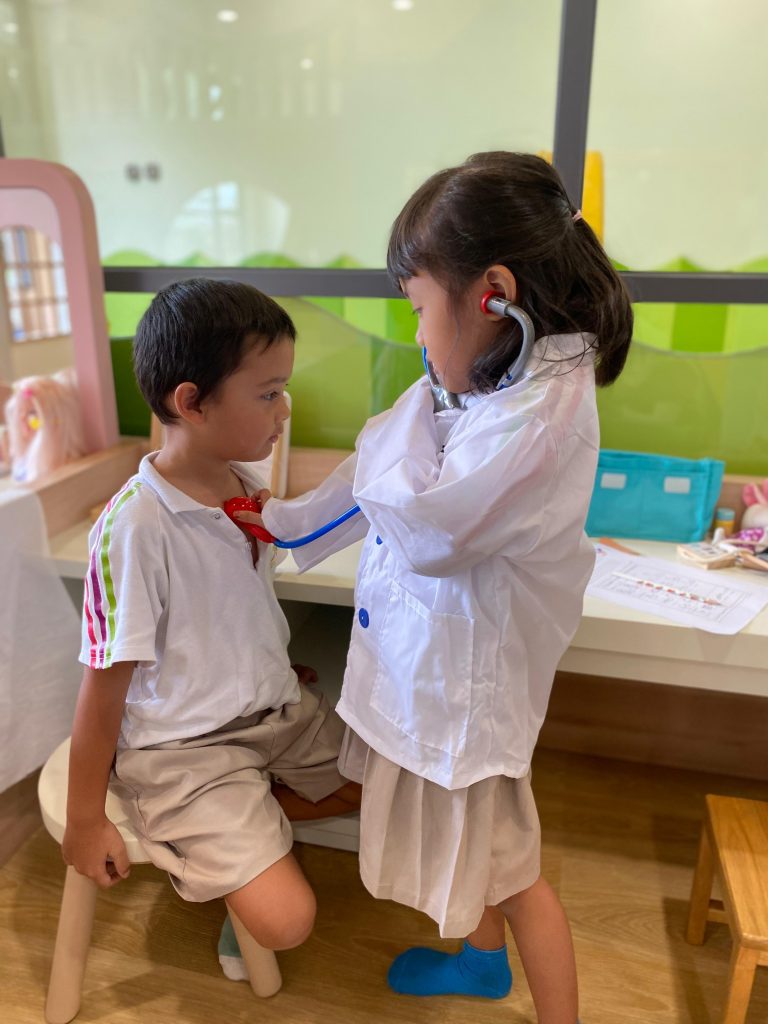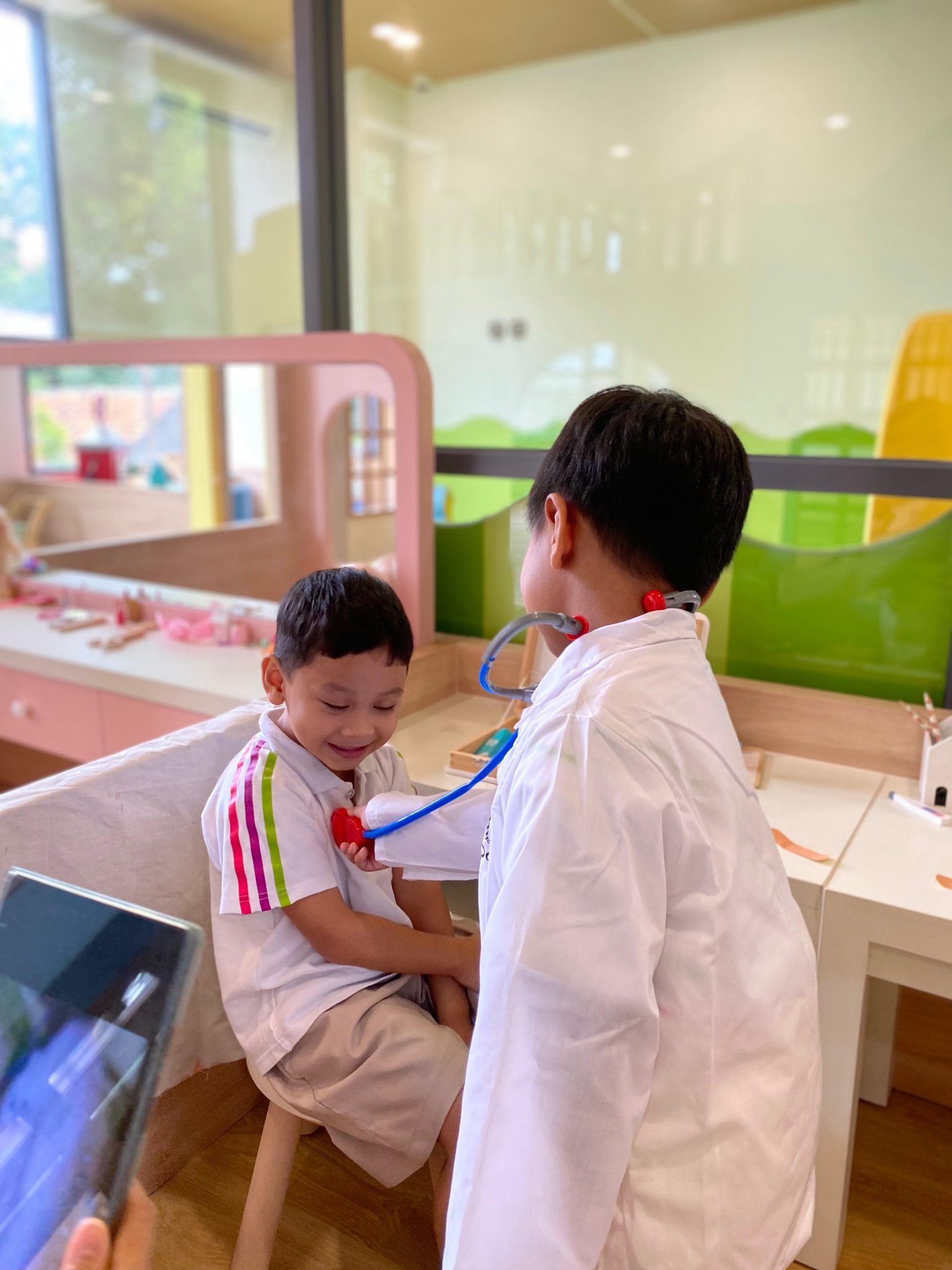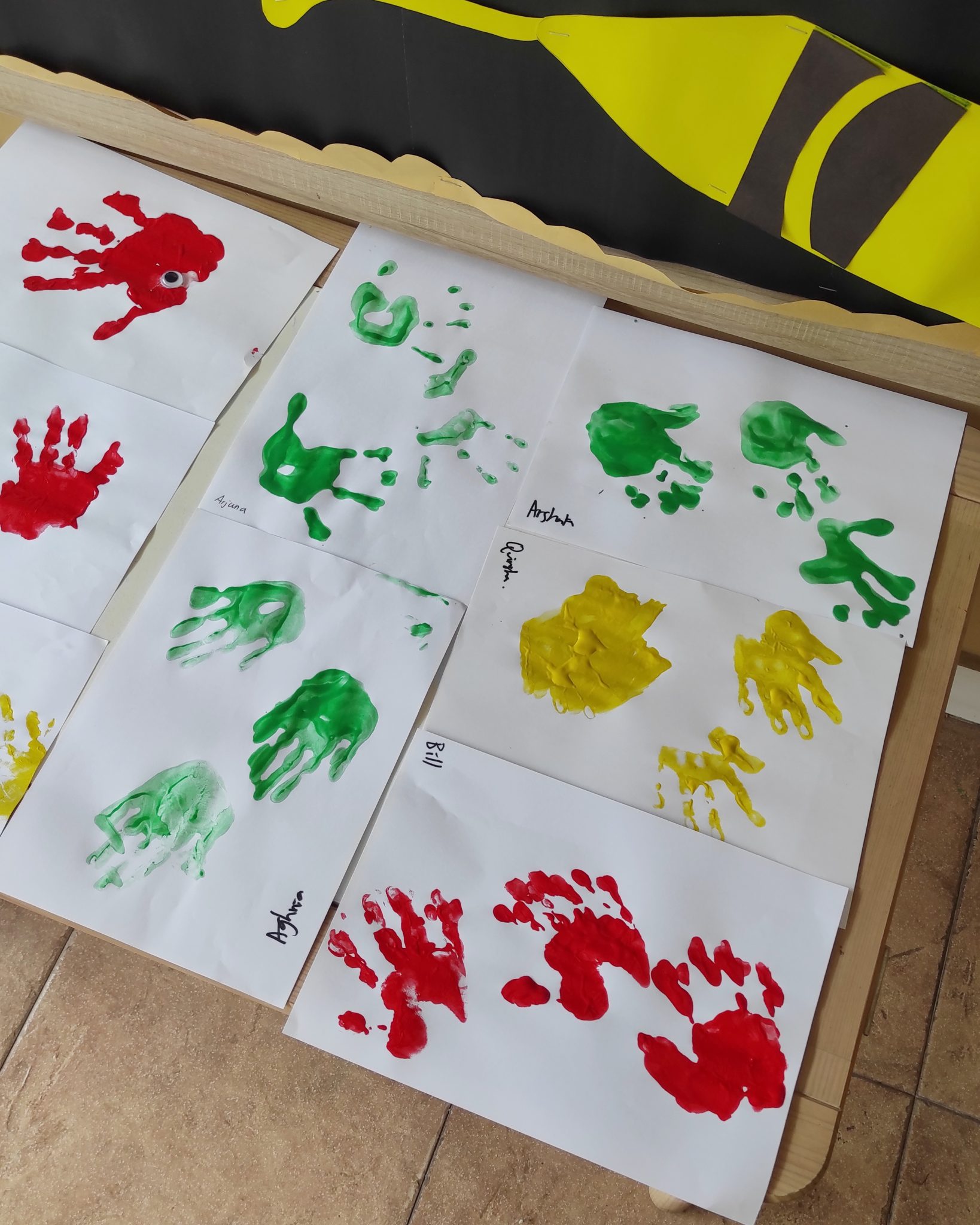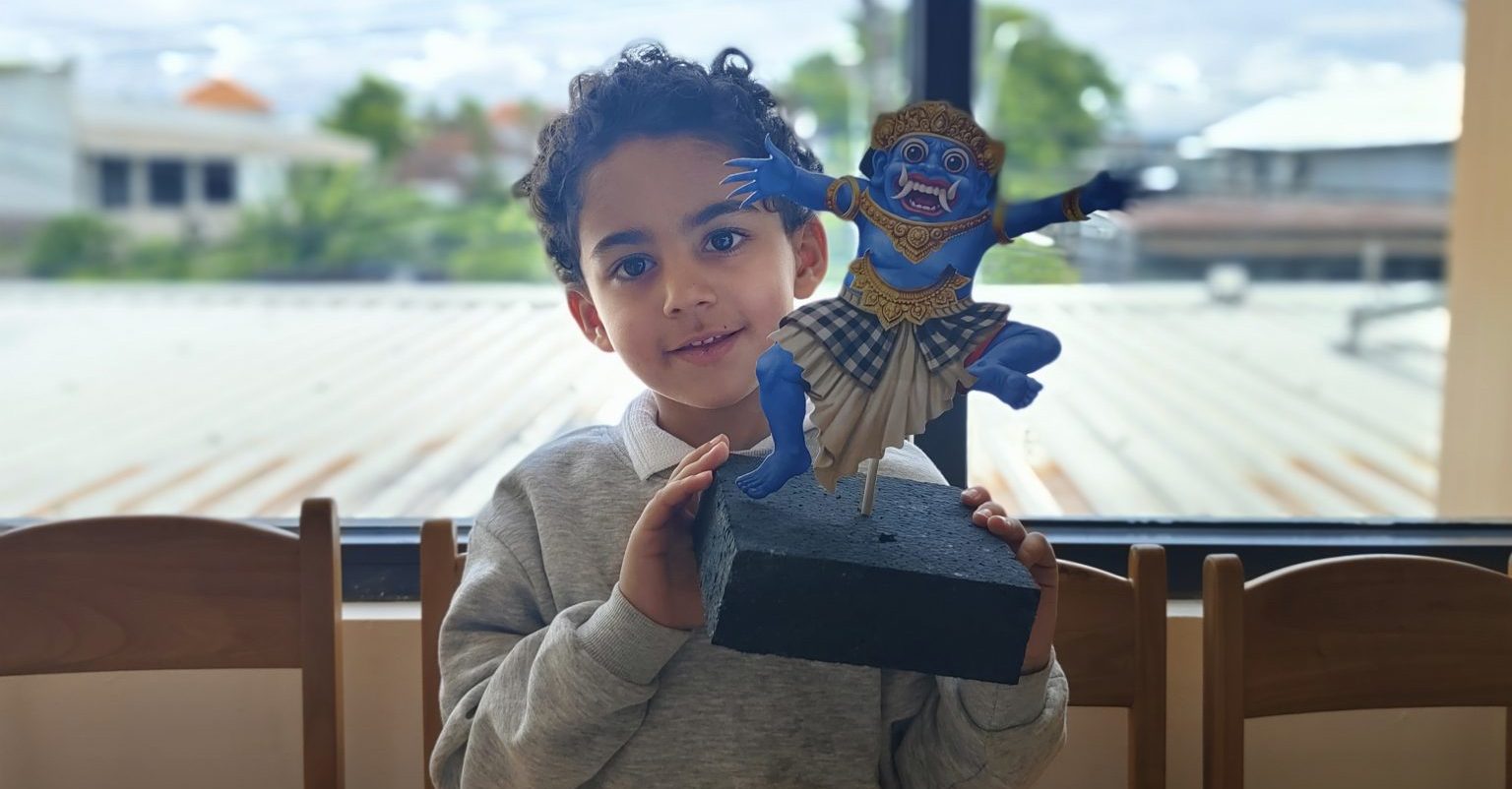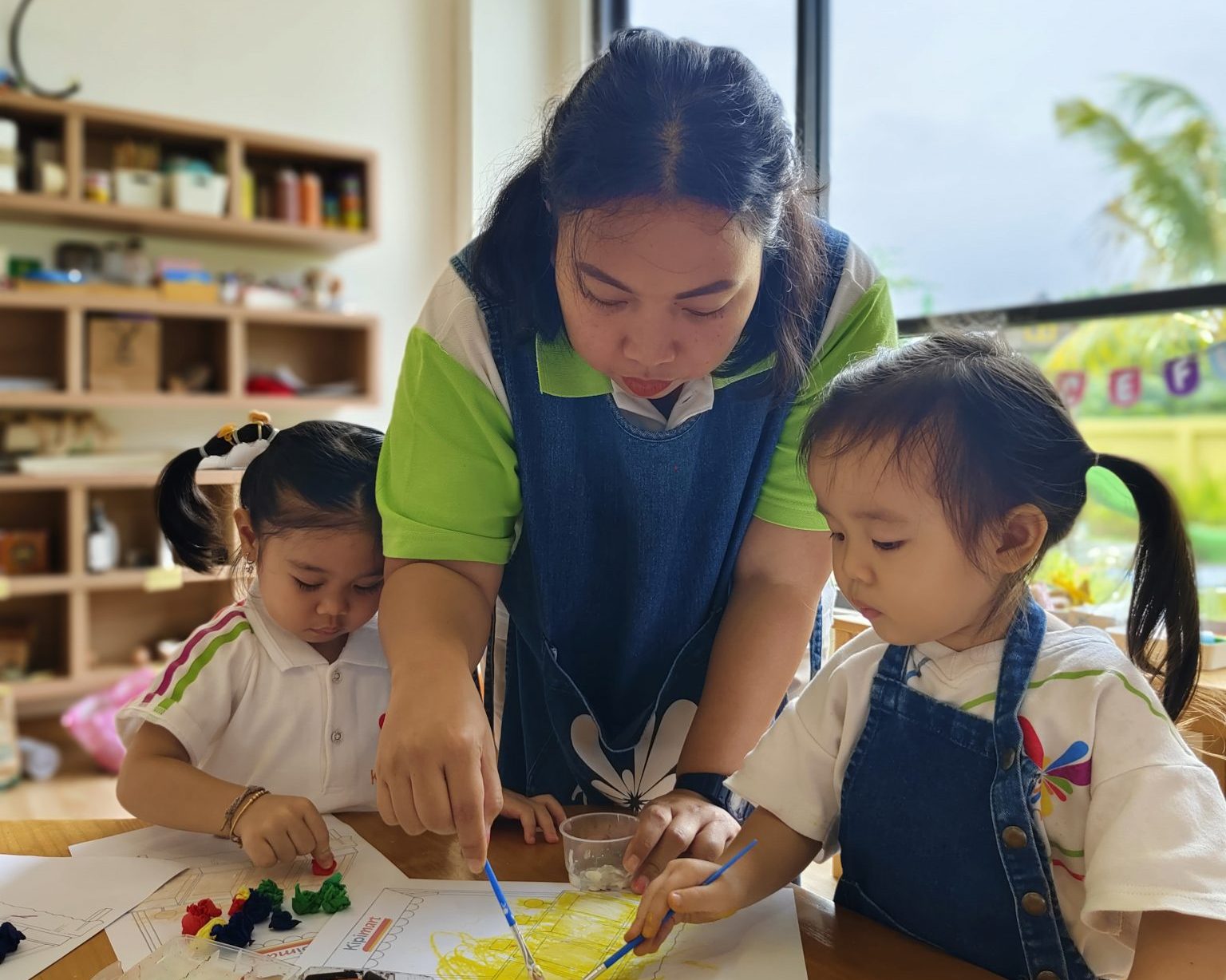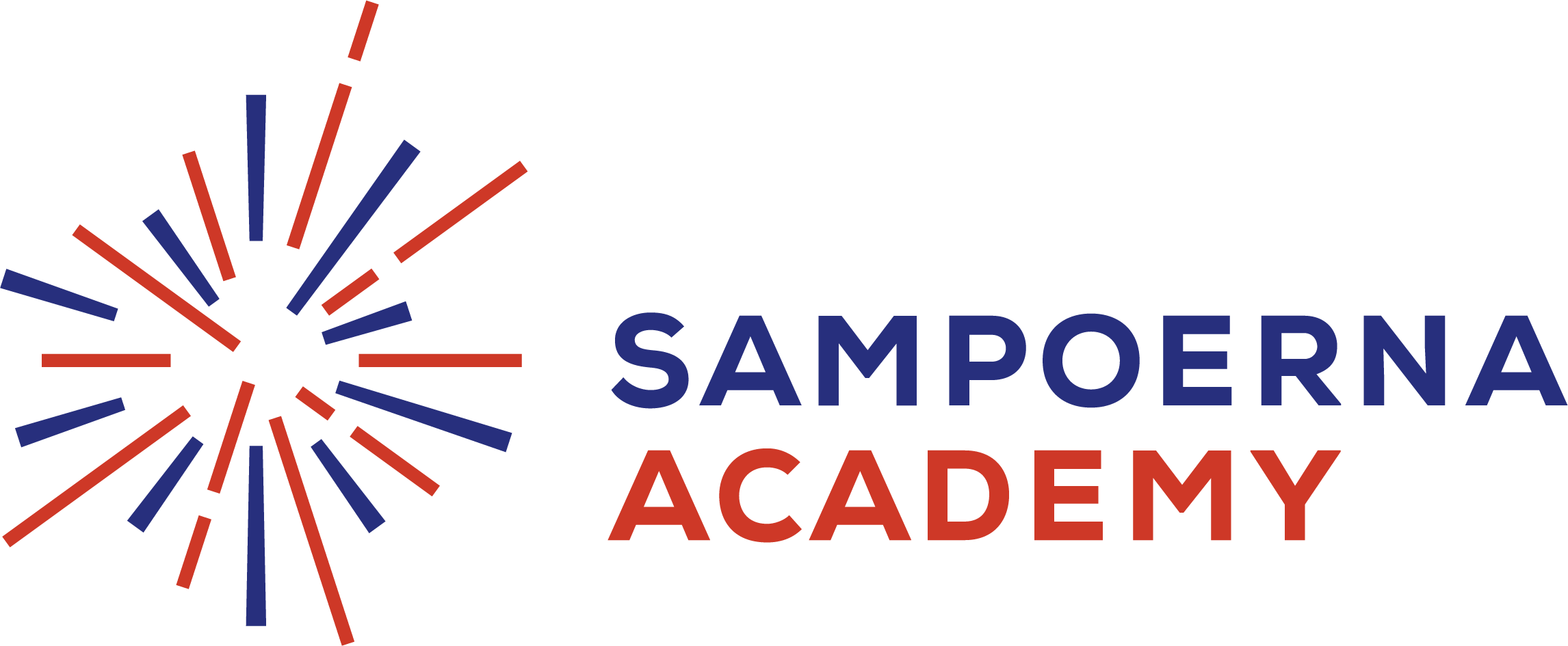Created : 1 February 2025
In a world of endless imagination, a kindergarten classroom transforms into a bustling clinic, where young learners don white coats and stethoscopes, ready to “treat” their friends with care and kindness. Pretend play as doctors is more than just a fun activity—it’s an essential part of early childhood education that nurtures social skills, empathy, and cognitive development. As these little doctors examine their plush toy patients, take notes on “medical charts,” and diagnose imaginary illnesses, they unknowingly build confidence, communication skills, and an early understanding of healthcare roles. By engaging in these playful scenarios, children develop problem-solving abilities, expand their vocabulary, and enhance their ability to collaborate with peers.
Beyond fostering creativity, pretend play as doctors introduces young learners to the basics of health and well-being. Teachers guide the children in understanding the importance of hygiene, the role of medical professionals, and the concept of caring for others. Through hands-on experiences like using toy thermometers, bandaging “injuries,” and listening to heartbeats, children become familiar with real-world tools and situations, reducing fear and anxiety about medical visits. This immersive activity also strengthens emotional intelligence as children practice expressing concern for “patients” and learn to comfort one another. In the end, a simple role-playing session becomes a meaningful foundation for lifelong learning, encouraging curiosity, compassion, and confidence in every child who steps into the world of make-believe medicine.
